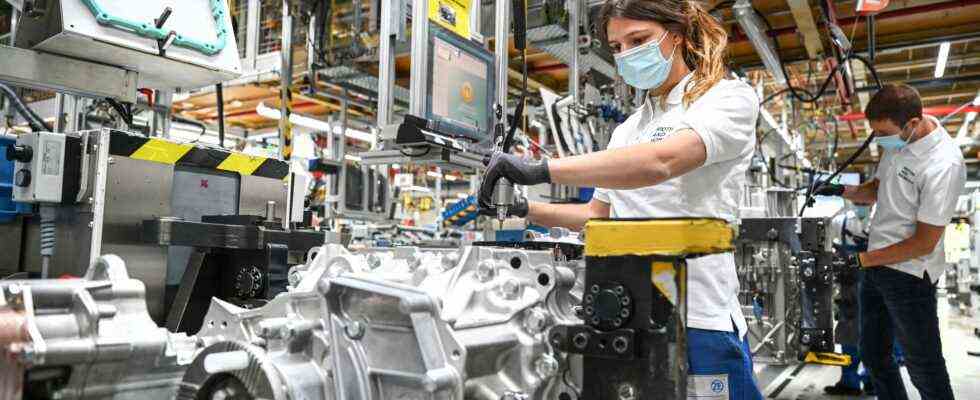Status: 07/07/2021 2:22 p.m.
Bottlenecks in preliminary products also slowed production in Germany in May. While economists had expected an increase, there was a decrease – for the fourth time this year.
Industry, construction and energy suppliers together produced 0.3 percent less in May than in the previous month. The Federal Ministry of Economics announced this today. This was the fourth decline this year. Economists, however, had expected an increase of 0.5 percent. The main reason for the decline is industrial production. It shrank in May by 0.5 percent compared to the previous month. In construction, on the other hand, there was an increase of 1.3 percent; energy production fell by 2.1 percent. Compared to February 2020, the month before the start of the corona restrictions, production was 5.0 percent lower.
The Ministry justified the decline with the supply bottlenecks for semiconductors in the automotive sector. The industry association VDA lowered its forecast for car sales in Germany because of the production problems caused by the chip shortage. Only three percent growth to three million vehicles is expected, said VDA boss Hildegard Müller. Previously, the industry had targeted plus eight percent. “The outlook for industrial activity overall remains positive,” said the Ministry of Economic Affairs. Because the demand is high and the business climate has improved.
No broken leg or cause for concern?
Experts assess the situation differently. While Jens-Oliver Niklasch, an economist at LBBW, does not find the decline pleasing, but also not dramatic in view of the delivery bottlenecks in some areas, other experts are concerned about the continuing shortage of materials. “If goods cannot be delivered, some companies do not place an order,” says chief economist Thomas Gitzel from VP Bank. But prices, which have risen due to the delivery bottlenecks, are also likely to reduce orders. “Fewer orders mean less production in the future,” warned Gitzel. “From this point of view, the shortage becomes a serious threat to economic development.”
The Federal Statistical Office also fired a shot across the bows of the optimists yesterday. After that, orders from German industry fell more sharply in May than since the first lockdown in 2020. After that, the companies received 3.7 percent fewer orders than in the previous month.

